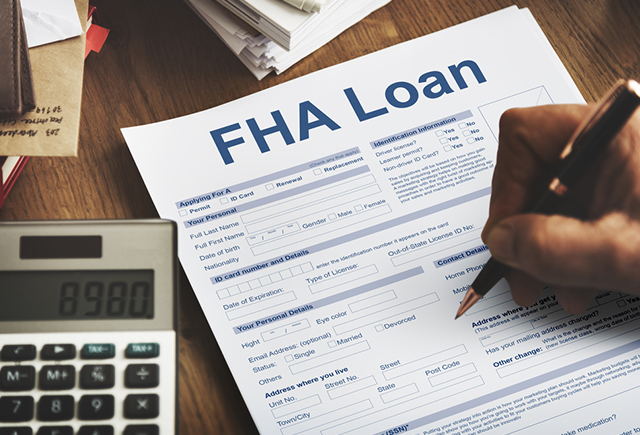However, not everyone has the required credit score to qualify for a standard mortgage loan. In such cases, they might still be eligible for an FHA loan, which is a government-backed mortgage offered to home buyers with poor credit history.
Mortgage lenders rely on a process called pre-approval to determine whether someone qualifies for a home loan. This process helps them determine the financial situation and payment ability of borrowers. Getting a FHA mortgage loan requires going through pre-approval. In this article, we explore how the FHA pre-approval process works.
What Is A Pre-Approval Process?
Pre-approval is a quite common process when it comes to mortgage loans. Most financial institutions will perform a pre-approval to evaluate a borrower’s economic situation and determine if they qualify for a loan. During the process, lenders check credit histories, verify current debt levels, and request proof of annual income. This information helps lenders calculate whether borrowers are in a position to pay back the loan, as well as how much money can be approved.
In general, pre-approval is usually requested by borrowers before searching for a home to purchase. Obtaining a letter of pre-approval gives borrowers an idea of how much money can they borrow from lenders, allowing them to narrow the search. Pre-approved homebuyers are often given privilege by real estate agents because they can receive financing. Also, it gives sellers assurance that the borrower is serious about buying a home.
However, pre-approval has its limitations. Letters of pre-approval are valid for a certain amount of time and do not guarantee that funding will indeed be received. Receiving pre-approved funds will depend on whether borrowers accept the terms and conditions set by lenders, such as payment options and interest rates.
A letter of pre-approval only means that the issuing financial institution is willing to approve a loan. Many borrowers have the misconception that being pre-approved by one institution is enough to obtain funding from any lender. However, mortgage lenders usually only give validity to letters of pre-approval they issued. If borrowers decide to seek funding somewhere else, they most likely will go through the pre-approval process once again.
Pre-approval is necessary to obtain a mortgage loan. FHA loan are no exception, as most financial institutions will have to determine whether an applicant meets specific FHA requirements. In the next section, we talk about FHA loans and their features.
What Is An FHA Mortgage Loan?
An FHA loan is a government-backed mortgage insured by the Federal Housing Administration (FHA). An FHA mortgage loan requires a lower minimum credit score and down payment, which makes it popular among first-time homebuyers and low-income families. FHA loans were created during the 1930s to address high foreclosure and default rates caused by the Great Depression.
In general, lenders approve standard mortgage loans to homebuyers with credit scores above 620. Borrowers often put a down payment of between 3 and 20 percent and agree to adjustable interest rates to receive funding. In contrast, FHA mortgage loans are available to people with scores as low as 500, with a down payment of 10 percent and fixed interest rates. If their score is above 580, FHA-approved lenders ask for a smaller down payment of 3.5 percent. However, to offset additional risk, borrowers are required to pay mortgage insurance.
FHA mortgage loans remain the best alternative for low-income families who have struggled to save money for down payment. In recent years, FHA loans have been issued with hybrid interest rates to reduce mortgage insurance premiums. The FHA has also developed additional programs to help families cover down payments, including grants for low and very low income households.
How Does the FHA Pre-Approval Process Work?
The pre-approval process for an FHA loan has some significant differences compared to standard mortgages. For example, only FHA-approved lenders can issue such loans, and specific requirements must be met before the process can continue. Potential home buyers should contact a FHA-approved broker with experience in FHA loans to smoothen the pre-approval process. FHA loans are meant to purchase primary residences. As a result, borrowers who do not intend to occupy the house are generally not approved.
As we mentioned above, FHA mortgage loans are available to low income families with credit scores as low as 500. However, they must also meet some additional requirements before being pre-approved. First, borrowers must have no less than two years of steady employment in the same company or industry. During that period, their income must have remained the same or increased.
Second, borrowers must have no or few instances of late payments in their credit report. In general, mortgage lenders approve customers with less than two 30-day late payments in the last year. Those who have one 60-day or 90-day late payment are also considered as long as it only happened once in the past twelve months. However, some lenders might ignore these requirements if borrowers have sufficient income and prove that extreme circumstances where causing such late payments. In those cases, they must provide down payment and pay for mortgage insurance to offset the additional risk.
Borrowers with previous bankruptcies have to face additional challenges. In these cases, their bankruptcy discharge rate should not be within 24 months of the FHA case assignment. Additionally, their last foreclosure must have taken place more than three years before the loan application date. If foreclosure was related to a loan backed by the Department of Housing and Urban Development (HUD), waiting periods might be longer. However, borrowers with previous foreclosures are generally not approved for an FHA mortgage loan.
Potential home buyers who comply with these requirements can move forward with the pre-approval process. Once they have contacted a broker and identified a FHA-approved mortgage lender, what comes next is the pre-approval request. This final step involves submitting the required paperwork and awaiting for the mortgage lender’s final decision. In the next section, we explore which documents mortgage lenders request, and why are they necessary to get pre-approved.
What Documents Are Required To Get Pre-Approved
Getting pre-approved for an FHA mortgage loan requires submitting a large amount of paperwork. Borrowers have to give mortgage lenders documents that prove their employment status, savings, credit history and tax documents. When it comes to personal information, lenders are usually satisfied with a government-issued document such as a social security card or driver’s license. However, other documents might be harder to compile.
FHA loans are only given to borrowers purchasing a primary residence. As a result, mortgage lenders require addresses of places where the borrower has lived in the last two years. In addition to that, they also require detailed information about employers during the same period, including company and boss names, monthly income and other benefits. To supplement that information, lenders need valid W-2 forms from the last two years, which include borrowers’ annual gross income and amount of withheld taxes.
Tax documentation is also necessary to get pre-approved. In general, mortgage lenders request tax returns for the past two years. Those who are employed must submit pay stubs for the last two months as well as an employment confirmation letter. Applicants who are self-employed must prove they have a steady income from their businesses. To do this, they must submit business tax returns, profit and loss statements and balance sheets. Paperwork related to a borrower’s assets is also required to successfully complete the pre-approval process.
Benefits of FHA Pre-Approval Process
Getting pre-approved for a FHA mortgage loan can be an exhausting process. During pre-approval, borrowers submit a long list of paperwork and give lenders permission to perform a hard inquiry on their credit history, which affects credit scores. However, the benefits of getting pre-approved makes it worth the trouble.
First, the pre-approval process helps families organize their documents for a future mortgage application. It also provides them with a tool to determine how much they can borrow. A significant number of home buyers don’t have a clear picture of their finances until they initiate the pre-approval process. Going through pre-approval is a useful method of determining the health of someone’s financial situation.
Second, borrowers with pre-approval letters have increased negotiating power during the search process. As mentioned above, real estate agents often prioritize buyers who are pre-approved. As a result, these borrowers have additional leverage when making an offer to buy their chosen home. Getting pre-approved removes a layer of uncertainty, giving sellers an assurance that individuals have the financial background needed to obtain financing.
Although it may seem like a good idea to get pre-approved for a FHA mortgage loan, borrowers should only do so when needed. The pre-approval process requires lots of paperwork and constitutes a hard inquiry on a person’s credit report. People with a high number of hard inquiries might lose credibility in the eyes of mortgage lenders, and thus be denied access to pre-approval. As a general rule, only go through pre-approval if you are going to purchase a home.




